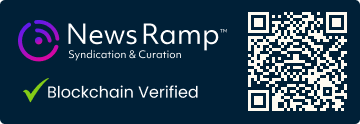Evolving Employment Law Demands Proactive Compliance Strategy for California Employers

Summary
Full Article
As workplace laws continue to shift, employers face new challenges and greater litigation risks according to Michael W. M. Manoukian, Partner at Lathrop GPM LLP in San Jose. Employment law has evolved from a reactive function to a strategic priority over the past decade, with many employers previously treating compliance as a checkbox exercise now recognizing it as central to risk management and business planning. The sharp rise in wage and hour class actions and Private Attorneys General Act (PAGA) cases in California has underscored the high cost of even minor compliance gaps, making proactive measures essential for business survival.
The proliferation of wage and hour class actions and PAGA claims represents one of the fastest-growing areas of employment litigation in California. Manoukian regularly defends companies in complex cases involving alleged off-the-clock work, unpaid overtime, meal and rest break violations, inaccurate wage statements, delayed final wage payments, and noncompliant time records. His preventive approach focuses on helping employers address gaps before they become claims through comprehensive audits, policy development, and targeted training for managers and human resources teams. This strategic shift from reactive defense to proactive prevention marks a significant evolution in how businesses approach employment law compliance.
State-level regulatory changes present additional challenges for employers operating in California and across multiple jurisdictions. With ongoing adjustments to minimum wage requirements, paid leave rules, and evolving labor regulations, Manoukian emphasizes that being proactive is key to success. As companies expand across California or into other states, they need systems that can adapt quickly to shifting requirements and strategic partners who understand how legal developments across multiple jurisdictions impact operations. He advises clients to invest in proactive audits, implement strategic documentation practices, and maintain up-to-date cross-jurisdictional policies that meet the highest applicable standards rather than simply meeting minimum requirements.
The rise of remote and hybrid work arrangements has created new compliance complexities that extend beyond traditional workplace boundaries. Despite the dispersed nature of modern workforces, employers must still ensure accurate time tracking, payment for all hours worked, reimbursement of necessary expenses, and consistent policies regardless of where employees work. Manoukian helps companies leverage technology to simplify compliance and accountability by automating recordkeeping, expense reporting, time management and pay practices that remain compliant with all applicable state and federal laws. This technological integration becomes particularly crucial for organizations managing employees across different regulatory environments.
Artificial intelligence represents both opportunity and risk in the HR compliance landscape. As more employers utilize AI in hiring and HR processes, California is leading regulatory efforts in this emerging space. Manoukian notes that AI can transform HR operations but must be implemented responsibly, as missteps in automated decision-making that result in bias or discriminatory outcomes can cause both legal exposure and reputational harm. He works with companies to create AI governance frameworks that align innovation with legal safeguards, allowing employers to capture technology's efficiency while maintaining fairness and employee trust.
Looking ahead, Manoukian identifies several key legislative developments that could impact California employers, including bills related to paid sick leave expansion, workplace violence prevention, and noncompete restrictions. Rather than waiting for new rules to take effect, he encourages clients to plan ahead by mapping potential impacts on workforce costs, updating policies, and training managers early. This type of readiness allows companies to maintain continuity, preserve culture, and control costs during regulatory changes. The next frontier for employers will be adaptability in continuously integrating technology into compliance and culture, with challenges like remote workforce management, AI integration, and continued legislative change testing employers' flexibility across all sectors.
For HR vendors and service providers, these developments create both challenges and opportunities. The increasing complexity of employment law compliance drives demand for sophisticated solutions that can help employers navigate multi-jurisdictional requirements, implement effective technology systems, and develop proactive compliance strategies. Companies that treat compliance as an investment in operational excellence rather than merely a cost center can achieve measurable returns through stronger performance, lower risk exposure, and greater employee engagement. This shift toward strategic compliance management represents a significant market opportunity for HR technology providers and consulting services that can deliver integrated, adaptable solutions.

This story is based on an article that was registered on the blockchain. The original source content used for this article is located at citybiz
Article Control ID: 264877